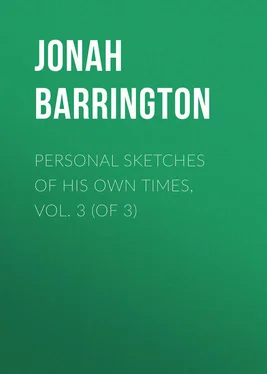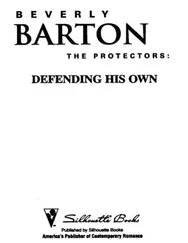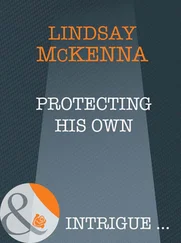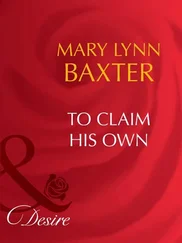Jonah Barrington - Personal Sketches of His Own Times, Vol. 3 (of 3)
Здесь есть возможность читать онлайн «Jonah Barrington - Personal Sketches of His Own Times, Vol. 3 (of 3)» — ознакомительный отрывок электронной книги совершенно бесплатно, а после прочтения отрывка купить полную версию. В некоторых случаях можно слушать аудио, скачать через торрент в формате fb2 и присутствует краткое содержание. Жанр: foreign_antique, foreign_prose, на английском языке. Описание произведения, (предисловие) а так же отзывы посетителей доступны на портале библиотеки ЛибКат.
- Название:Personal Sketches of His Own Times, Vol. 3 (of 3)
- Автор:
- Жанр:
- Год:неизвестен
- ISBN:нет данных
- Рейтинг книги:4 / 5. Голосов: 1
-
Избранное:Добавить в избранное
- Отзывы:
-
Ваша оценка:
- 80
- 1
- 2
- 3
- 4
- 5
Personal Sketches of His Own Times, Vol. 3 (of 3): краткое содержание, описание и аннотация
Предлагаем к чтению аннотацию, описание, краткое содержание или предисловие (зависит от того, что написал сам автор книги «Personal Sketches of His Own Times, Vol. 3 (of 3)»). Если вы не нашли необходимую информацию о книге — напишите в комментариях, мы постараемся отыскать её.
Personal Sketches of His Own Times, Vol. 3 (of 3) — читать онлайн ознакомительный отрывок
Ниже представлен текст книги, разбитый по страницам. Система сохранения места последней прочитанной страницы, позволяет с удобством читать онлайн бесплатно книгу «Personal Sketches of His Own Times, Vol. 3 (of 3)», без необходимости каждый раз заново искать на чём Вы остановились. Поставьте закладку, и сможете в любой момент перейти на страницу, на которой закончили чтение.
Интервал:
Закладка:
An incident appertaining to the same body, but with a termination by no means similar, occurred a few years afterward, which, among other matters, contributes to show what different sort of things the Irish at different times rejoice in. In 1809, they rejoiced in full jubilee on the memorable event of his Majesty King George the Third having entered the fiftieth year of his reign, without ever paying one visit to, or taking the least notice of, his loyal Corporation of Dublin: and after he was dead ( de facto , for the King never dies de jure ), they celebrated another jubilee on account of his Majesty George the Fourth honouring them with a visit the very earliest opportunity . This was the first time any king of England had come to Ireland, except to cut the throats of its inhabitants; and his present Majesty having most graciously crossed over to sow peace and tranquillity among them, if possible, and to do them any and every kindness which they would submit to , it was not wonderful each man in Ireland hailed the event as forming a most auspicious commencement of his Majesty’s reign, not only over his subjects at large, but, in particular, over that glorious, pious, immortal, and uproarious body, the Corporation of Dublin city. Events have proved how ungratefully his Majesty’s beneficent intentions have been requited.
His Majesty having arrived at the hill of Howth, to the universal joy of the Irish people, was received with unexampled cordiality, and in due form, by the Right Honourable the Lord Mayor, on the very field of battle where O’Brien Borun had formerly acquired undying fame by cutting the Danes into slices (an operation which we have since repeated on them at Copenhagen, though with different instruments). That Right Honourable Lord Mayor was Sir Abraham Bradley King, then one of the best looking aldermen in Europe. On this occasion he obtained, not military honour, but, on the other hand, a more tranquil one than the said King O’Brien Borun ever arrived at; – he was actually imperialised as a baronet in very superior style to his brother corporator Steemer , on the loyal demi-century occasion.
I have since heard that an effort was made somewhat to transform the armorial bearings of the Bradley King family, also, in commemoration of this auspicious event; and that it was intended to give him, as an addition to his crest, Sir John Skinner’s steam packet, out of which his Majesty had landed just previous to bestowing the baronetcy on Sir Abraham. Here the city punsters began again with their vulgar insinuations; and, omitting the word packet , gave out that Alderman King wanted to put Alderman Steemer as a supporter to his arms, instead of a griffin rampant or unicorn, as customary on these occasions; but this vile play upon words Sir Abraham peremptorily and properly checked with the same constitutional firmness and success wherewith he had previously refused to “tell tales out of school” about the Orangemen to the House of Commons. 3 3 This was the first instance I recollect of pertinacity conquering privilege.
On this occasion, Sir Abraham proudly and virtuously declared that all the heralds in Europe should never ravish him as they had done his brother Steemer; and that if any alteration was to be made in his shield by Ulster-at-arms, or any Ulster in Europe, he would permit nothing but an emblematic crown to be introduced therein, in honour and commemoration of his sovereign; and though our national poet, Mr. Thomas Moore, and Sir Abraham, never coalesced upon any point whatsoever (except the consumption of paper), yet on this conciliatory occasion, Sir Abraham declared his willingness to forgive and forget the religion and politics of the poet for eight and forty hours. This was as it should be; and a crown, with a posy or nosegay in its neighbourhood (instead of a cut and thrust) are accordingly embodied in the armorial bearings of Sir Abraham, the cruel idea of a bloody hand being now softened down and qualified by the bouquet which adorns it.
Again the indefatigable corporation wags, who could let nothing pass, began their jocularities: the worthy Baronet’s name being King , and the shield having a crown in it, the Common Council began to hob-nob him as, Your Majesty , or the Crown Prince , or such like. But Sir Abraham had been an officer in the King’s service, and being a spirited fellow to boot, he declared open and personal hostility against all low and evil-minded corporate punsters. These titles were therefore relinquished; and the whole affair ended, to the real satisfaction of every staunch Protestant patriot from Bray to Balbiggen, and as far westward as the College of Maynooth, where I understand the rejoicings terminated – for Sir Abraham found the road too bad to travel any farther.
Having endeavoured somewhat to divert the reader’s criticism on my pedigree blunder, I have, in compliance with the wish of one of the ablest, wisest, and steadiest public personages of Great Britain (whose title heads this volume), reopened my old trunks, and made a further attempt at amusing myself and other folks – and at depicting, by authentic anecdotes, the various and extraordinary habits and propensities of the Irish people, with their gradual changes of national character for the last fifty or sixty years, – which (to my grief I say it) will be the work, not of a novelist , but a contemporary . I fancy there are very few of those who flourished so long ago, who could procure pen, ink, and paper, either for love or money, where they sojourn at present; and of those who still inhabit the same world with the stationers, some have lost one half of their faculties, at least, and scarce any among the remainder possess sufficient energy to retrace by description the events that took place during a long and, perhaps, active career. I shall take Time by the forelock; and, ere the candle goes out, draw as many Sketches of my past day as I may have time to record, before I wish the present generation a good morning – which adieu cannot now be long distant: — tant pis !
DANGERS OF REFLECTION
Personal description of Counsellor Conaghty – Singular contrast of physical roughness and mental suavity – A legal costume – The Counsellor’s marriage – The bride described – Her plan for inducing her husband to sacrifice to the Graces – The fatal mirror – The Counsellor views himself in a new light – His consternation and false persuasion – The devil unjustly accused – Conaghty’s illness and death.
The most extraordinary instance I recollect of a sudden affection of the mind being fatal to the body was presented by an old acquaintance of mine, Counsellor Conaghty, a gentleman of the Irish bar, who pined and died in consequence of an unexpected view of his own person; but by no means upon the same principle as Narcissus.
Mr. Conaghty was a barrister of about six feet two inches in length; his breadth was about three feet across the shoulders; his hands splay, with arms in full proportion to the rest of his members. He possessed, indeed, a set of limbs that would not have disgraced a sucking elephant; and his body appeared slit up two-thirds of its length, as if Nature had originally intended (which is not very improbable) to have made twins of him – but finding his brains would not answer for two , relinquished her design. His complexion, not a disagreeable fawn-colour, was spotted by two good black eyes, well intrenched in his head, and guarded by a thick chevaux de frise of curly eyebrows. His mouth, which did not certainly extend, like a john-dory’s, from ear to ear, was yet of sufficient width to disclose between thirty and forty long, strong, whitish tusks, the various heights and distances whereof gave a pleasing variety to that feature. Though his tall countenance was terminated by a chin which might, upon a pinch, have had an interview with his stomach, still there was quite enough of him between the chin and waistband to admit space for a waistcoat, without the least difficulty.
Читать дальшеИнтервал:
Закладка:
Похожие книги на «Personal Sketches of His Own Times, Vol. 3 (of 3)»
Представляем Вашему вниманию похожие книги на «Personal Sketches of His Own Times, Vol. 3 (of 3)» списком для выбора. Мы отобрали схожую по названию и смыслу литературу в надежде предоставить читателям больше вариантов отыскать новые, интересные, ещё непрочитанные произведения.
Обсуждение, отзывы о книге «Personal Sketches of His Own Times, Vol. 3 (of 3)» и просто собственные мнения читателей. Оставьте ваши комментарии, напишите, что Вы думаете о произведении, его смысле или главных героях. Укажите что конкретно понравилось, а что нет, и почему Вы так считаете.












